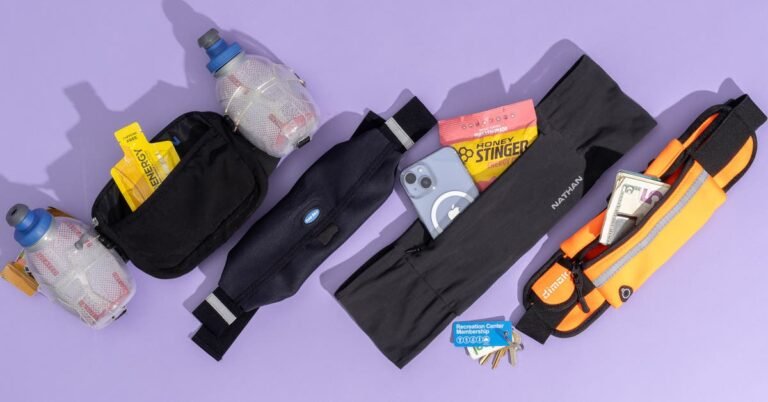Spring is approaching, and so are warm days, budding flowers, and allergies. If you’re like me, that means plenty of sneezing and relentlessly itchy eyes. We all know it’s coming when we step outside. But what if I told you that the pollen tickling your nose or the mold spores irritating your throat can follow you inside? That’s nothing of the pet dander and dust mites that are already waiting. According to the United States Environmental Protection Agency, pollutant concentrations can be two to five times higher inside than outdoor concentrations.
Allergens are everywhere, and if you’re sensitive to them, you’ll do almost anything to combat them, including investing in an air purifier for your home. “Air purifiers can drastically reduce airborne allergens like pollen, pet dander and dust mites, allowing those with allergies to have noticeable relief,” said Dr. Michael Chichak, Medical Director at MEDvidi.
Here’s how air purifiers work and how having them in your home can boost your health and get you through allergy season.
How does an air purifier work?
Air purifiers generally use three main methods to remove particles, pollutants and gases from the air in your home: filtration, electrostatic precipitation and ionizing. However, if you’re focused on your health, opt for a filtration air purifier because the EPA warns that ozone is made when using electrostatic and ionizing purifiers.
Filtration air purifiers vary in filter type, though the most effective form is the HEPA filter, which stands for high-efficiency particulate absorber. It removes at least 99.97% of particulates from the air and performs better than standard filters because they are designed to trap smaller particles. HEPA filters are pleated so that when the air is pulled through the filter, pollutants get trapped in the filter, and clean air is pushed out the other side thanks to the circulating fans.
If you want as much filtration as possible, always look for the HEPA filter indication on any air purifier you’re considering. That’s not to say other filters are bad; they just can’t filter to the degree HEPA filters do.
How air purifiers can benefit your health
Air purifiers are becoming a household staple because of their health and allergy benefits. Below are some ways that air purifiers can contribute to a healthier you.
HEPA air purifiers can benefit allergy symptoms
Air purifiers can significantly improve allergy relief. Allergies are more than a minor annoyance. They’re an immune response that reacts to substances that enter the body. For some, symptoms can be so severe that they impact daily function. Air purifiers can help remove airborne allergens from the air before they trigger allergies.
However, as Dr. Purvi Parikh, an allergist with Allergy & Asthma Network, points out, some particles, like dust mites and pollen, are too small to be filtered by some air purifiers. HEPA filters, on the other hand, are equipped to filter out anything later than 2 microns (pollen generally ranges from 10 to 1000 microns, though it can be smaller).
What kind of allergens do air purifiers help with?
- Pollen
- Pet dander
- Dust
- Smoke
- Mold
- Odors
- Gaseous pollutants like paints, pesticides and VOCs
Air purifiers are only effective for the allergens in the air. Once the dust or pet dander settles on surfaces, your air purifier can’t help. So it’s essential to regularly sweep, vacuum and keep your home clean to reduce allergens. An air purifier is a tool to reduce allergens in your home, not the only thing you should rely on.
They can reduce airborne illness
Besides particles that can trigger your allergies, air purifiers can reduce the spread of airborne illnesses. “HEPA air purifiers can basically filter out anything larger than 2 microns in particle size, so can help prevent infections too by filtering our viral and bacterial particles,” said Parikh.
According to the EPA, HEPA filters can trap viral particles associated with respiratory diseases like COVID-19. Alternatively, purifiers that contain a UV-C lamp prevent bacteria or viral particles from reproducing. Air purifiers are a great way to keep respiratory bugs from spreading through your house and jumping from family member to family member. However, it’s important to remember that no air purifier can stop the spread, even if it helps.
They can reduce asthma and respiratory illness triggers
For those with asthma, a chronic condition that causes the airways to swell and narrow, or other respiratory illnesses, you would likely benefit from an air purifier that cleans your home’s air. Think of all the allergens and toxins floating around in the air as irritants for your lungs; if your lungs and airways are already affected, reducing additional triggers is vast for quality of life.
“Air purifiers do help maintain health by getting rid of other damaging airborne materials such as mold spores, smoke, and volatile organic compounds (VOCs), which may worsen existing respiratory conditions,” said Chichak.
Continued exposure to air pollution can have a serious impact on your health and increase your risk for conditions like stroke, heart attack, hypertension and heart failure. Some research has found that the filtration of fine particles in the air and the reduction of indoor pollutants may improve blood pressure and heart rate. Air purifiers may contribute to improved markers of heart health in those with COPD or other respiratory illnesses, though more research is needed to know how much they contribute. Still, if you live in a city with high pollution, investing in an air purifier is probably worth it.
They can help you sleep better
Allergies and respiratory problems can worsen at night when we’re trying to sleep because symptoms like nasal congestion and coughing make it difficult to stay asleep. Not to mention, if you’re exposed to allergens like pet dander or mold, your risk of having a nocturnal asthma attack increases. Bad sleep quality isn’t just an annoyance that leaves you feeling off the next day. Long-term sleep deprivation is linked to conditions like heart disease, stroke, diabetes and high blood pressure.
Placing an air purifier in your bedroom near the bed can improve your sleep quality. It worked for me. I used to struggle to breathe through my nose during allergy season, leaving me with fragmented sleep and profound fatigue the next day. Once I added an air purifier to my bedroom, I stopped waking up because of coughing fits. I still have allergies, though the symptoms aren’t as bad at night.
It’s best to put the air purifier in your breathing space for the best results.
They can help clear smoke
Indoor smoke can come from several sources, like smoking, cooking, fireplaces or natural disasters like the recent LA wildfires. No matter the source, smoke is harmful to breathe in. Research has shown that air purifiers with HEPA filters are effective at removing smoke particles from the air, though they won’t help remove nicotine from tobacco smoke.
Wildfire smoke particles are generally smaller than 10 microns, so investing in an air purifier with a HEPA filter is best because they are efficient at clearing smoke.
Read more: We Asked the Experts: How to Protect Yourself From Smoke During California Fires
Too long; didn’t read?
Research points to air purifiers having tangible health impacts because they reduce irritants and pollutants in your home. However, healthy living isn’t as easy as setting up an air purifier and going about your day.
“Air purifiers should not be treated as the only tool that manages allergies because they are most effective when used as part of an all-encompassing plan that includes cleaning and sometimes medication,” warned Chichak.
Once particles and allergens settle on surfaces, air purifiers cannot remove those in the home. Air purifiers are just a piece of the puzzle regarding keeping your home clean and healthy.
Quick air purifier tips:
- Opt for a HEPA air purifier to remove finer particles from the air, such as pollen, dander and dust mites. Some brands boast “HEPA-like” or “HEPA-type” filters, though these aren’t the same thing.
- Remember that an air purifier is only as good as the maintenance you put into it. You have to clean and replace the filters regularly (most are six to 12 months).
- Ensure your air purifier is equipped to handle the size of the room you put it in. Air purifiers have a clean air delivery rate (CADR) metric that indicates how much air they can clean per minute. It’s measured in cubic feet per minute. The general rule is that the CADR should equal at least two-thirds of the room size.
- Put your air purifier by your bed if you struggle with allergy symptoms through the night.
Source link
[og_img
Spring is approaching, and so are warm days, budding flowers, and allergies. If you’re like me, that means plenty of sneezing and relentlessly itchy eyes. We all know it’s coming when we step outside. But what if I told you that the pollen tickling your nose or the mold spores irritating your throat can follow you inside? That’s nothing of the pet dander and dust mites that are already waiting. According to the United States Environmental Protection Agency, pollutant concentrations can be two to five times higher inside than outdoor concentrations.
Allergens are everywhere, and if you’re sensitive to them, you’ll do almost anything to combat them, including investing in an air purifier for your home. “Air purifiers can drastically reduce airborne allergens like pollen, pet dander and dust mites, allowing those with allergies to have noticeable relief,” said Dr. Michael Chichak, Medical Director at MEDvidi.
Here’s how air purifiers work and how having them in your home can boost your health and get you through allergy season.
How does an air purifier work?
Air purifiers generally use three main methods to remove particles, pollutants and gases from the air in your home: filtration, electrostatic precipitation and ionizing. However, if you’re focused on your health, opt for a filtration air purifier because the EPA warns that ozone is made when using electrostatic and ionizing purifiers.
Filtration air purifiers vary in filter type, though the most effective form is the HEPA filter, which stands for high-efficiency particulate absorber. It removes at least 99.97% of particulates from the air and performs better than standard filters because they are designed to trap smaller particles. HEPA filters are pleated so that when the air is pulled through the filter, pollutants get trapped in the filter, and clean air is pushed out the other side thanks to the circulating fans.
If you want as much filtration as possible, always look for the HEPA filter indication on any air purifier you’re considering. That’s not to say other filters are bad; they just can’t filter to the degree HEPA filters do.
How air purifiers can benefit your health
Air purifiers are becoming a household staple because of their health and allergy benefits. Below are some ways that air purifiers can contribute to a healthier you.
HEPA air purifiers can benefit allergy symptoms
Air purifiers can significantly improve allergy relief. Allergies are more than a minor annoyance. They’re an immune response that reacts to substances that enter the body. For some, symptoms can be so severe that they impact daily function. Air purifiers can help remove airborne allergens from the air before they trigger allergies.
However, as Dr. Purvi Parikh, an allergist with Allergy & Asthma Network, points out, some particles, like dust mites and pollen, are too small to be filtered by some air purifiers. HEPA filters, on the other hand, are equipped to filter out anything later than 2 microns (pollen generally ranges from 10 to 1000 microns, though it can be smaller).
What kind of allergens do air purifiers help with?
- Pollen
- Pet dander
- Dust
- Smoke
- Mold
- Odors
- Gaseous pollutants like paints, pesticides and VOCs
Air purifiers are only effective for the allergens in the air. Once the dust or pet dander settles on surfaces, your air purifier can’t help. So it’s essential to regularly sweep, vacuum and keep your home clean to reduce allergens. An air purifier is a tool to reduce allergens in your home, not the only thing you should rely on.
They can reduce airborne illness
Besides particles that can trigger your allergies, air purifiers can reduce the spread of airborne illnesses. “HEPA air purifiers can basically filter out anything larger than 2 microns in particle size, so can help prevent infections too by filtering our viral and bacterial particles,” said Parikh.
According to the EPA, HEPA filters can trap viral particles associated with respiratory diseases like COVID-19. Alternatively, purifiers that contain a UV-C lamp prevent bacteria or viral particles from reproducing. Air purifiers are a great way to keep respiratory bugs from spreading through your house and jumping from family member to family member. However, it’s important to remember that no air purifier can stop the spread, even if it helps.
They can reduce asthma and respiratory illness triggers
For those with asthma, a chronic condition that causes the airways to swell and narrow, or other respiratory illnesses, you would likely benefit from an air purifier that cleans your home’s air. Think of all the allergens and toxins floating around in the air as irritants for your lungs; if your lungs and airways are already affected, reducing additional triggers is vast for quality of life.
“Air purifiers do help maintain health by getting rid of other damaging airborne materials such as mold spores, smoke, and volatile organic compounds (VOCs), which may worsen existing respiratory conditions,” said Chichak.
Continued exposure to air pollution can have a serious impact on your health and increase your risk for conditions like stroke, heart attack, hypertension and heart failure. Some research has found that the filtration of fine particles in the air and the reduction of indoor pollutants may improve blood pressure and heart rate. Air purifiers may contribute to improved markers of heart health in those with COPD or other respiratory illnesses, though more research is needed to know how much they contribute. Still, if you live in a city with high pollution, investing in an air purifier is probably worth it.
They can help you sleep better
Allergies and respiratory problems can worsen at night when we’re trying to sleep because symptoms like nasal congestion and coughing make it difficult to stay asleep. Not to mention, if you’re exposed to allergens like pet dander or mold, your risk of having a nocturnal asthma attack increases. Bad sleep quality isn’t just an annoyance that leaves you feeling off the next day. Long-term sleep deprivation is linked to conditions like heart disease, stroke, diabetes and high blood pressure.
Placing an air purifier in your bedroom near the bed can improve your sleep quality. It worked for me. I used to struggle to breathe through my nose during allergy season, leaving me with fragmented sleep and profound fatigue the next day. Once I added an air purifier to my bedroom, I stopped waking up because of coughing fits. I still have allergies, though the symptoms aren’t as bad at night.
It’s best to put the air purifier in your breathing space for the best results.
They can help clear smoke
Indoor smoke can come from several sources, like smoking, cooking, fireplaces or natural disasters like the recent LA wildfires. No matter the source, smoke is harmful to breathe in. Research has shown that air purifiers with HEPA filters are effective at removing smoke particles from the air, though they won’t help remove nicotine from tobacco smoke.
Wildfire smoke particles are generally smaller than 10 microns, so investing in an air purifier with a HEPA filter is best because they are efficient at clearing smoke.
Read more: We Asked the Experts: How to Protect Yourself From Smoke During California Fires
Too long; didn’t read?
Research points to air purifiers having tangible health impacts because they reduce irritants and pollutants in your home. However, healthy living isn’t as easy as setting up an air purifier and going about your day.
“Air purifiers should not be treated as the only tool that manages allergies because they are most effective when used as part of an all-encompassing plan that includes cleaning and sometimes medication,” warned Chichak.
Once particles and allergens settle on surfaces, air purifiers cannot remove those in the home. Air purifiers are just a piece of the puzzle regarding keeping your home clean and healthy.
Quick air purifier tips:
- Opt for a HEPA air purifier to remove finer particles from the air, such as pollen, dander and dust mites. Some brands boast “HEPA-like” or “HEPA-type” filters, though these aren’t the same thing.
- Remember that an air purifier is only as good as the maintenance you put into it. You have to clean and replace the filters regularly (most are six to 12 months).
- Ensure your air purifier is equipped to handle the size of the room you put it in. Air purifiers have a clean air delivery rate (CADR) metric that indicates how much air they can clean per minute. It’s measured in cubic feet per minute. The general rule is that the CADR should equal at least two-thirds of the room size.
- Put your air purifier by your bed if you struggle with allergy symptoms through the night.
5 Ways an Air Purifier Will Boost Your Health
[title_words_as_hashtags




